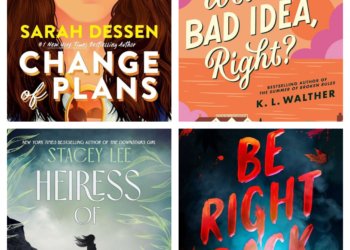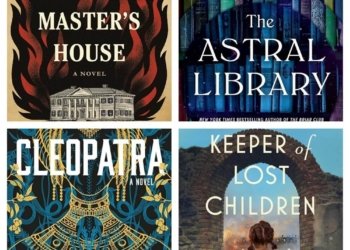No products in the cart.
A Conversation with Diane Owens Prettyman, a Romance Author
Diane Owens Prettyman is the author of the romantic adventure story Thin Places and the twentieth-century historical novel Redesigning Emma.
111
SHARES1.6k
VIEWSDiane Owens Prettyman is the author of the romantic adventure story Thin Places and the twentieth-century historical novel Redesigning Emma. She is also a frequent contributor to the Austin American-Statesman. She stays true to her belief that every story has a happy ending, though perhaps sometimes, maybe even often, one has to wait for the perfect finale. Diane lives just a few hours’ drive from the Texas Gulf. She is an avid boogie boarder and spends her summers in the water. Her husband and two black standard poodles provide her room and board in Austin, Texas.
Let’s get started with a quick rapid fire.

Q1. If you could be transformed into one animal, which one would you choose?
Dolphin.
Q2. Finish the phrase “the way to my heart is…”
through dancing.
Q3. Are you more of an introvert or an extrovert?
Shy extrovert.
Q4. Do you watch shows one episode at a time or binge whole seasons?
Binge.
Q5. Would you rather travel to the past or to the future?
Past.
Q6. What is your last Google search?
How to get book reviews.
Q7. What object do you misplace or lose the most?
iPhone.
Q8. What is the kindest thing someone ever did for you?
When I was in junior high, my father was driving my friend home from a visit to my house. I was mad at my father for some reason. While we were driving, she passed me a note that said: Time is too expensive to be spent in anger.
Q9. If given the chance to start your life over, would you take it?
Yes. “A word of forgiveness, not to mention love, goes a long way toward healing the soul.”Diane Owens Prettyman, Thin Places
Q10. What is the best present you have ever received?
For my last birthday, my best friend took me on a surprise road trip to see the 10 Wonders of Oregon.
Q11. If you were to devote the rest of your life to philanthropy, what cause would you choose?
The environment.
It’s time for a more detailed conversation, Diane.
You’ve answered our rapid fire so well, Diane. Now, it’s time for our readers to know more about the person behind the book.
Q. Describe your journey so far.
I’ve always been on a spiritual journey. I think it’s the Welsh and Irish in me. As a young girl, I remember looking at the night sky in Oregon and thinking how could someone look at this beauty and not believe in God. My spiritual life always led me to create things. To paraphrase Julia Cameron from her book The Artist’s Way, all creativity comes from the divine —someone or something or someplace. She also emphasizes the importance of finding synchronicity in your life—paying attention two or more instances of coincidence. Awareness of what some people call “God Winks” connects me to my creative side.
This all may sound a bit “woo-woo.” But I truly believe that by being in touch with my creative self, I enhance my inner understanding of the divine in me and the world. The more connected I am to the divine, the more creative I am. They feed each other.
I started writing creative non-fiction and health articles for periodicals and remain a frequent contributor to the Austin American-Statesman. Later, I started focusing on fiction. My first work of fiction was Thin Places. Love is for the Birds is my third book.
Q. So, what books did you grow up reading?
I liked Nancy Drew, Little Women, The Razor’s Edge, Les Miserables, Little House on the Prairie.
Interesting. Has writing and publishing a book changed the way you see yourself?
Yes. Giving birth to a book is like having a child. You’ll always have the experience. Writing and publishing is the result of my spiritual journey. The Creator instilled in all of us gifts to share with this world. Whether its baking a cake, or painting a rock, or singing in the choir, we all have something creative to share.
Q. Would you share something about yourself that your readers don’t know (yet)?
I always have a fairy garden in my entryway. Also, I was a spy in East Berlin. “Solitude does strange things to a man. When it’s just you & your soul, you better be friends.”Diane Owens Prettyman, Thin Places
Q. Now comes the most anticipated question that every author must answer. How do you process and deal with negative book reviews?
I’m actually quite Zen about it. I have so many other things to worry about—politics, climate, my children—that the book reviews seem a small thing. I also know that it is a fact that there are haters in this world. Hate is a very powerful emotion and some people get pleasure out of saying hateful things. I believe it is a sickness. I can’t let myself pay any attention to it. I like to believe love is more powerful, and I do all I can to promote love. That said, I really haven’t had that many horrible reviews. I don’t consider a 3 rating a bad review. It’s an average score. A 1 or 2 is horrible and disappointing, but unless they are all you receive, no writer should pay attention to them. Usually I receive 4’s.
I have a critique group I’ve worked with for about 20 years. They have toughened my skin. A critique group provides a safe place for writers to desensitize. I’ve known people who quit their critique group because of a bad critique session. Sometimes a group can be a bad fit, other times the writer is just not ready to hear constructive feedback. But if you have a good critique group, receiving feedback should be something you’ve learned to appreciate and benefit from.
Q. What comes first for you — the plot or the characters — and why?
The characters come first for me. In my latest book, Love is for the Birds, I started with the idea of a candy store owner in a beach town. The story for my novel took off from that image.
Q. How do you develop your plot and characters?
I start off writing openings and let the character lead me where they want to go. After about 50 pages, I step back and map out scenes.
Q. What does literary success look like to you?
I recently had a book signing in Port Aransas, Texas, the town my book is patterned after. I sold out of my books. Everyone was so welcoming. I received a comment on my website about how much someone enjoyed my book. They didn’t have to say anything. But they took the time to write me. The greatest part of being a writer is having a complete stranger read your book and say they loved it.

Q. Let’s talk about your book. Tell us about it. No major spoilers.
A beach town destroyed. Her mother’s candy store swept away. This is what Teddy Wainsworth faces when she returns to Bird Isle. Meanwhile, Jack Shaughness, owner of a popular barbecue restaurant chain and widower still grieving the death of his wife, receives permission to cross over to the island with a smoker full of brisket to feed hurricane survivors. Soon after arriving, he meets Teddy and immediately finds himself drawn to her—which makes him feel he is betraying his wife. When the two find a lost dog, Jack convinces Teddy to take the dog home while they attempt to find the owner, creating a bond that brings them closer.
In the wake of the hurricane, Bird Isle residents fear the Aransas Wildlife Refuge will not be ready for the Whooping Cranes’ annual migration south. Seeing that Jack has important connections and a love for the island, they enlist him to help restore the habitat of the endangered cranes before they fly to Padre Island for the winter. With their rescued dog always nearby, Teddy and Jack work side by side to rebuild Bird Isle for the return of the Whooping Cranes. But Jack is harboring a secret that may ruin everything he and Teddy are creating—and he won’t be able to keep that secret forever.
Q. What part of the book did you have the hardest time writing?
Sagging middles are always a problem.
Q. If you could meet your characters, what would you say to them?
I’d say thanks for the journey.
Q. What is your writing process like? Are you more of a plotter or a pantser?
I’m a pantser. I wrote the first draft of this novel in 3 months while taking an Artist’s Way class. The manuscript was very rough. Then I workshopped it for a couple years with my critique group.
Q. Let’s talk about the process of writing. When you’re writing an emotional or difficult scene, how do you set the mood?
Experiencing the flow of creativity is a magical/spiritual event. I spoke about paying attention to the divine in the universe and in yourself. This increases the chances of getting into the flow. Also, at the summer Iowa Writers Workshop, I learned a helpful trick for getting in the mood. Read another author and type their words for a few minutes. This seems to unclog my brain. Then, I can go back and write my own words.
Q. What has helped or hindered you most when writing a book?
I’m not the most disciplined person. I need deadlines and work well under pressure. My writing group is great for making deadlines.
Q. It’s been fun. Now, before we wrap this up, do you have any suggestions to help me become a better writer? If so, what are they?
Find a good critique group. Take the Artist’s Way class. Attend writing workshops on scene building and point of view.
Related Posts
10 Most Anticipated Young Adult Books of Spring 2026
As the seasons change and flowers begin to bloom, so too does the literary landscape, brimming with fresh stories just...
10 Most Anticipated Historical Fiction Books of 2026
As we step into a new year, the literary world brims with excitement for what's to come, especially in the...
8 Most Anticipated YA Romance Books of 2026
As we step into 2026, the world of young adult literature is bursting with excitement and promise, especially for fans...
8 Most Anticipated Horror Books of 2026
If you’re a horror enthusiast, get ready to mark your calendars! The literary world is buzzing with spine-chilling tales and...
About Us

Trenzle
Where Trends are made and discovered
Trenzle is your official source of discovering the latest people, work, and ideas that deserve to trend. Discover Authors and their books, Creators and their work, People and their opinions, and Stories from around the globe.
Learn more
Latest Posts
10 Most Anticipated Young Adult Books of Spring 2026
February 16, 2026
Trenzle Top 10 Trending Free Book Deals for February 09, 2026
February 9, 2026
10 Most Anticipated Historical Fiction Books of 2026
January 29, 2026
Categories
© 2023 Trenzle - Online Author News & Magazine










